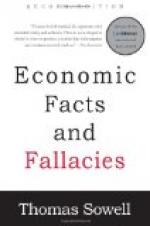|
This section contains 11,825 words (approx. 40 pages at 300 words per page) |

|
A fallacy, in the strict sense, is an invalid form of argument. Thus fallacy, or unsoundness in reasoning, is distinguished from simple falsity in that a single statement or belief may be false, but what is fallacious is the transition from a set of premises to a conclusion. However, this distinction is often slurred over; and we call other kinds of mistakes or confusion that are more or less closely related to faults in reasoning fallacies, in an extended sense. Indeed, we sometimes give the title of "fallacy" to what is little more than a particular type of false belief. At the same time, we usually count as fallacies only those invalid forms of argument, or related kinds of error, that are plausible and into which people frequently and easily fall. Fallacy is different from sophistry, which is the deliberate use of unsound reasoning or of related errors...
|
This section contains 11,825 words (approx. 40 pages at 300 words per page) |

|


